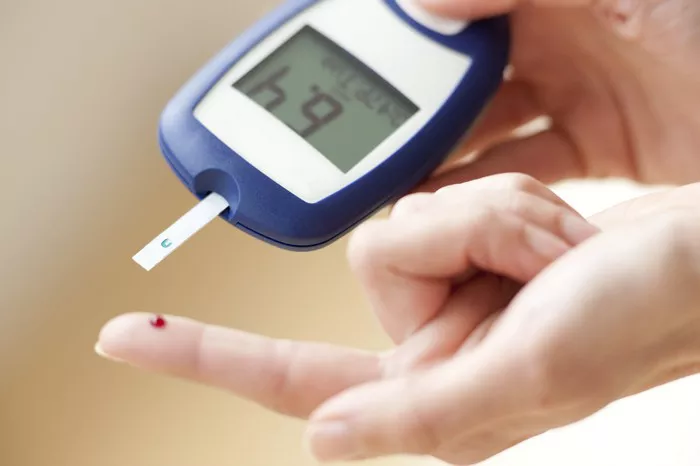Hypoglycemia, defined as a blood glucose level below 70 mg/dL, is a significant concern during pregnancy due to its potential impact on both maternal and fetal health. During pregnancy, various physiological changes occur that can predispose a woman to episodes of low blood sugar. This article delves into the multifaceted causes of hypoglycemia in pregnancy, encompassing physiological, lifestyle, and medical factors.
Physiological Changes During Pregnancy
Hormonal Fluctuations
Pregnancy is characterized by dramatic hormonal changes that significantly impact glucose metabolism. The primary hormones involved include estrogen, progesterone, human placental lactogen (hPL), and insulin.
- Estrogen and Progesterone: These hormones rise steadily during pregnancy and have complex effects on insulin sensitivity. Estrogen tends to improve insulin sensitivity, while progesterone can lead to insulin resistance. The balance between these effects varies among individuals, influencing their risk of hypoglycemia.
- Human Placental Lactogen (hPL): hPL increases as pregnancy progresses and induces a state of insulin resistance, intended to ensure a steady supply of glucose to the fetus. However, in the early stages of pregnancy, when hPL levels are lower, insulin sensitivity can be higher, increasing the risk of hypoglycemia.
- Insulin: Pregnant women without diabetes often experience increased insulin secretion to compensate for the insulin resistance induced by hPL. However, the initial increase in insulin sensitivity can sometimes outpace the body’s ability to adjust, leading to hypoglycemia, particularly in the first trimester.
Metabolic Demands
- Increased Energy Requirements: The growing fetus requires a constant supply of glucose, which alters maternal glucose metabolism. Early in pregnancy, the mother’s body may increase glucose utilization and storage, sometimes leading to lower blood sugar levels, especially if dietary intake does not meet these increased demands.
- Glycogen Storage and Breakdown: During pregnancy, the liver’s role in glycogen storage and gluconeogenesis becomes crucial. However, if glycogen stores are depleted (due to fasting, illness, or inadequate carbohydrate intake), hypoglycemia can occur.
Changes in Eating Patterns
- Nausea and Vomiting: Many pregnant women experience nausea and vomiting, especially in the first trimester. Known as morning sickness, this can lead to reduced food intake and disrupted eating patterns, increasing the risk of hypoglycemia due to inadequate carbohydrate consumption.
Lifestyle Factors
Dietary Habits
- Nutritional Intake: Adequate nutrition is vital during pregnancy, but poor dietary habits, such as skipping meals or following restrictive diets, can lead to insufficient glucose availability, causing hypoglycemia. Pregnant women are advised to consume balanced meals with appropriate proportions of carbohydrates, proteins, and fats to maintain stable blood glucose levels.
- Meal Frequency and Composition: Irregular meal timing or consuming meals that are low in carbohydrates can precipitate hypoglycemic episodes. Small, frequent meals that include complex carbohydrates, proteins, and healthy fats are recommended to maintain glucose levels.
Physical Activity
- Exercise: While moderate exercise is beneficial during pregnancy, excessive physical activity without appropriate caloric intake can lead to hypoglycemia. Pregnant women need to balance physical activity with adequate nutritional support to prevent low blood sugar levels.
Substance Use
- Alcohol Consumption: Alcohol can interfere with glucose metabolism and liver function, increasing the risk of hypoglycemia. Pregnant women are generally advised to avoid alcohol, but even occasional consumption can contribute to hypoglycemic episodes.
Medical Conditions
Pre-existing Diabetes
- Type 1 Diabetes: Women with Type 1 diabetes are at a higher risk of hypoglycemia during pregnancy due to the complexities of insulin management and hormonal changes that affect insulin sensitivity. Intensive insulin therapy, while necessary for glycemic control, can lead to frequent hypoglycemic episodes if not carefully monitored.
- Type 2 Diabetes: Although less common, women with Type 2 diabetes may also experience hypoglycemia, particularly if they are on insulin or oral hypoglycemic agents. Adjusting medication doses to account for changes in insulin sensitivity and metabolic demands is crucial to prevent hypoglycemia.
Gestational Diabetes Mellitus (GDM)
- Diagnosis and Management: GDM typically develops in the second or third trimester and involves glucose intolerance that first appears during pregnancy. Management of GDM often includes lifestyle modifications and, in some cases, insulin therapy. Hypoglycemia can occur if there is an imbalance between insulin administration and dietary intake or physical activity.
Other Medical Conditions
- Hyperemesis Gravidarum: This severe form of nausea and vomiting during pregnancy can lead to significant nutritional deficiencies and hypoglycemia due to prolonged periods without adequate food intake.
- Endocrine Disorders: Conditions such as Addison’s disease (adrenal insufficiency) or hypothyroidism can alter glucose metabolism and increase the risk of hypoglycemia during pregnancy.
Medication-Induced Hypoglycemia
Insulin Therapy
- Insulin Dosage: For women with pre-existing diabetes or GDM, insulin therapy is a common treatment. However, insulin requirements can fluctuate throughout pregnancy due to hormonal changes, making precise dose adjustments essential to avoid hypoglycemia.
- Insulin Sensitivity: Early in pregnancy, increased insulin sensitivity can lead to a higher risk of hypoglycemia if insulin doses are not adjusted appropriately. As pregnancy progresses and insulin resistance increases, insulin requirements typically rise, necessitating continual monitoring and dose modification.
Oral Hypoglycemic Agents
- Sulfonylureas and Meglitinides: These medications, which stimulate insulin secretion, can cause hypoglycemia, especially if not balanced with adequate carbohydrate intake. Their use in pregnancy is generally limited due to potential risks to the fetus, but if used, careful monitoring is required.
Management Strategies
Monitoring and Education
- Blood Glucose Monitoring: Frequent self-monitoring of blood glucose levels is crucial for pregnant women at risk of hypoglycemia. This helps in timely detection and management of low blood sugar episodes.
- Education and Support: Providing education on the signs and symptoms of hypoglycemia, along with dietary and lifestyle guidance, can empower pregnant women to manage their condition effectively. Access to healthcare providers for ongoing support and adjustments to therapy is also essential.
Dietary Management
- Balanced Diet: Emphasizing a balanced diet with adequate carbohydrates distributed evenly throughout the day can help maintain stable blood glucose levels. Including snacks between meals, particularly before bedtime, can prevent nocturnal hypoglycemia.
- Avoiding Simple Sugars: While it’s important to include carbohydrates in the diet, simple sugars can cause rapid fluctuations in blood glucose levels. Complex carbohydrates, which provide a more sustained release of glucose, are preferable.
Medical Management
- Insulin Adjustment: Regular adjustments to insulin therapy based on blood glucose monitoring and changing insulin sensitivity are necessary. Collaboration with a healthcare provider specializing in diabetes management is recommended.
- Medication Review: For women on oral hypoglycemic agents, regular review and adjustment of medications are critical to avoid hypoglycemia, particularly as pregnancy progresses and metabolic demands change.
Conclusion
Hypoglycemia in pregnancy is a multifactorial issue influenced by physiological changes, lifestyle factors, and pre-existing or pregnancy-related medical conditions. Understanding these causes is essential for effective management and prevention. Regular monitoring, dietary management, and appropriate medical interventions can help mitigate the risk of hypoglycemia, ensuring better outcomes for both mother and baby. Healthcare providers play a crucial role in educating and supporting pregnant women in managing their blood glucose levels, highlighting the importance of a comprehensive and individualized approach to care during this critical period.
Related topics:
What Are The Signs And Symptoms Of Hypoglycemia?
























